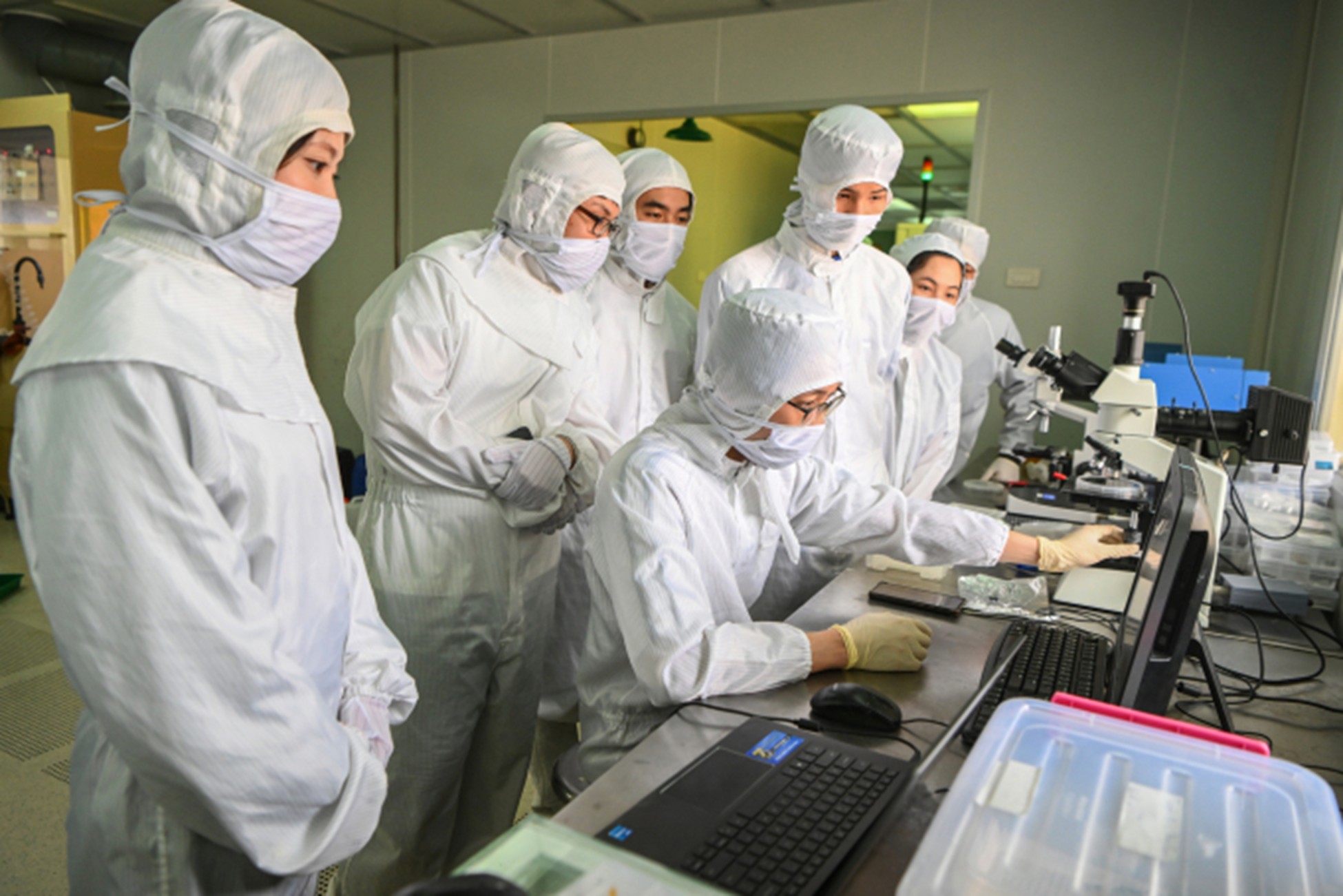Trump's tariffs, US-China trade relations, and a wave of AI investment are among the issues that could shape the global economy in 2026.
The Law on Digital Technology Industry was passed by the National Assembly on June 14, opening up opportunities for businesses to participate more deeply in the semiconductor industry.
On June 14, the National Assembly officially passed the Law on Digital Technology Industry. This is the first time Vietnam has built a separate legal framework for key industries such as artificial intelligence (AI), big data and especially semiconductors - a field considered the "backbone" of every modern digital industry. The law stipulates tax, land, credit and human resource incentives for organizations and businesses participating in chip research, design, production, packaging and testing.
One notable point is that the law allows controlled testing (sandbox) for digital technology products, including chips and microcircuit designs. This mechanism allows businesses to deploy products in real environments without being subject to legal constraints as in official trade, creating conditions for semiconductor startups to develop.
Many large organizations such as PwC and Deloitte predict that the global semiconductor market could surpass the $1,000 billion mark by 2030, as countries and businesses continue to increase investment in digital infrastructure, automation and advanced microchip manufacturing.
Advertisement
In the context of the restructuring of the global supply chain, Vietnam is considered a potential alternative destination thanks to its competitive costs, young technical workforce and stable political environment.
Currently, many large technology corporations have invested in this field in Vietnam. Intel invested about 1.5 billion USD in a packaging and testing factory in Ho Chi Minh City High-Tech Park. Samsung expanded its microchip production in Thai Nguyen. Recently, Amkor, one of the world's leading names in the OSAT (chip packaging and testing) field, also put into operation the first phase of its factory in Bac Ninh, with the goal of producing more than 3.6 billion chips per year from 2025.
Bac Ninh authorities have identified the semiconductor industry as a spearhead in the local economic development strategy, aiming to train at least 30,050 technical personnel by 2030, developing an ecosystem including production, logistics, training and support services.

Clean room, Nano and Energy Center, University of Science, Vietnam National University, Hanoi, where semiconductor training and research are conducted. Photo: Giang Huy
However, the biggest challenge at present is the shortage of human resources. According to statistics, Vietnam currently has only about 5,000-6,000 semiconductor engineers, while the actual demand by 2030 could be up to 50,000-100,000 people. The new law allows localities to develop their own policies to support businesses in paying for the cost of hiring and retraining high-quality human resources, thereby opening up investment opportunities in the field of training and developing specialized skills.
According to Nikkei and Financial Times, Vietnam is a new bright spot in the Asian semiconductor supply chain. Not only attracting FDI, Vietnam is also gradually building up its internal capacity through long-term policies, incentives and encouraging public-private partnership models.
(Source: Vnexpress)
--
Oristar – Leading Metal Supplier in Asia
⚡ Core product lines: Copper, Aluminum, Steel
⚡ Main product grades provided by Oristar: Aluminum alloys, Copper alloys, Aluminum alloy plates, Aluminum coil grades, Tool steel, Special steel: A5052, A6061, A7075, C1100, C2680, C3604, SUS303, SUS304, SKD11, SKD61,...
For product consultation, please contact:
⚡ Hotline: 0988 750 686
⚡ Email: info@oristar.vn
⚡ Zalo OA
⚡ ️Website E-commerce
⚡ Official Website

 VN
VN

 EN
EN
 KR
KR
 JP
JP
 CN
CN



 Economy
Economy


